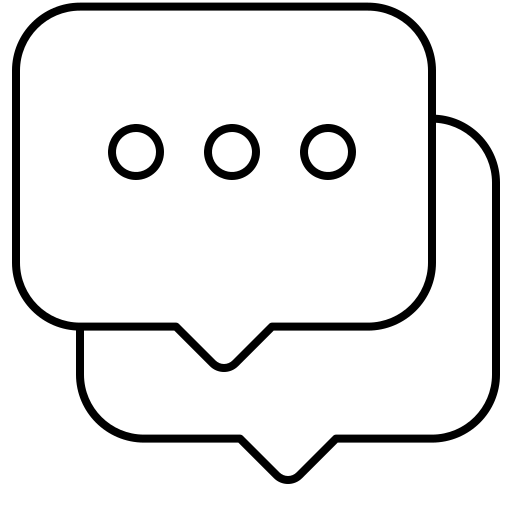As Azure cloud development and the Google Cloud Platform become popular, the competition between the three top cloud providers extends to AWS vs Azure vs Google Cloud. This will remain as more companies move their digital assets to new platforms. Amazon AWS, Microsoft Azure, and Google Cloud are three big providers that dominated the market share in 2020, with nearly 60% of cloud infrastructure worldwide.
With all that in mind, the next few years could lead cloud providers to offer various features for customers and add to their service quality. Choosing between the three platforms could be challenging, but in this article, we provide a complete comparison of the features, costs, functionalities, and advantages of market leaders in the cloud industry.
In This Article, You Will Read:
- Cloud Platforms Overview
- Amazon Web Services (AWS) – The Pioneer
- Microsoft Azure – The Strong and Reliable Challenger
- Google Cloud Platform (GCP) – The Growing Competitor
- In-Depth Cloud Compare: AWS vs Azure vs Google Cloud
- Market Position
- AWS vs Azure vs Google Cloud: Ultimate Pros and Cons
- AWS vs Azure vs Google Cloud: Compute Services
- Storage Services
- Development Tools
- AWS vs Azure vs Google Cloud: Network Comparison
- Cloud Security and Compliance Comparison
- Management and Monitoring Tools
- Hybrid and Multi Cloud Options
- High-Profile Customers
- AWS vs Azure vs Google Cloud: Pricing
- Availability Zones
- What’s the Best Cloud Development Model for You?
- Why Choose Azure for Cloud Migration?
- Need Help with Cloud Migration or Cloud Solution Development? Take Advantage of DeljooSoft Expertise
- Our Cloud Development Services
Cloud Platforms Overview

There are numerous cloud-based platform providers, but the market leaders have dominated the industry with various features and cost-effective plans for all businesses. While AWS offers its full services, Microsoft Azure and Google Cloud have improved their plans to exceed other competitors’ plans in terms of ownership costs, features, reliability, and security.
Every platform has exclusive options for businesses and enterprises; however, in the following sections, we explain some differences between the three cloud providers.
Amazon Web Services (AWS) – The Pioneer

After its first launch in 2004, AWS now has more than 30% of the market share. AWS provides unique services for any business, including computing plans, storage, and networks for IaaS, PaaS, and SaaS services.
By providing a broad range of capabilities and features, AWS presents the following services for organizations and enterprises:
- Computing
- Storage and data handling solutions
- Cloud application development
- Cloud integration tools
- Management tools for monitoring and analytics
Amazon AWS provides many benefits that stem from its productivity and broad availability:
- Various services
- Support services
- Continuous growth for features and cloud tools
Alongside all the benefits of AWS, it has remarkable disadvantages compared to others, as follows:
- High costs compared to similar services from other providers
- Additional fees for services and support
- Lack of experts
Contact our experts
Don’t hesitate to contact us!
Microsoft Azure – The Strong and Reliable Challenger

Microsoft entered the cloud industry after Amazon in 2008. By providing an Azure cloud platform, Microsoft offers unique plans and options for businesses. The Azure platform has matured in a few years and is the second market leader, offering high-performance development services and related technologies.
Azure is an integrated platform providing SaaS, IaaS, and PaaS development storage and computing. Here are some benefits of Microsoft Azure offered by Cloud-native development platform, powerful tools, DevOps features, and IoT integration:
- Universal availability of services
- Integrated with other Microsoft software and applications
- Support for a wide range of programming languages and technologies
- Low pricing
- Robust tools for monitoring and management
There are also some weaknesses for the Microsoft Azure platform like others:
- Some reported issues with data management
- Problems with documentation and support
- Reports of difficulties with design and learning
Google Cloud Platform (GCP) – The Growing Competitor

Owning the third-ranking among top cloud providers, GCP has provided its services to small-medium businesses. Google Cloud was launched in 2008 and has computing, storage, and database services for IaaS and PaaS.
Google platform provided its features with high availability, reliable storage and management, and integration capabilities:
- Scalability
- Integrated tools and programming languages
- Simple to set up and run applications
Google Cloud has some disadvantages that make it less popular among other competitors:
- Fewer services
- Fewer cloud options and features
- Less advanced features for enterprises
In-Depth Cloud Compare: AWS vs Azure vs Google Cloud

As the cloud industry and platform providers evolve, the market share will change over time.
But, the three leaders with exceptional services and plans are on top of our list, and some other cloud providers have remarkable market share in the cloud industry:
- Alibaba Cloud 6%
- IBM Cloud 5%
- Salesforce 3%
- Tencent Cloud 2%
- Oracle Cloud 2%
The following section explains the pros and cons of AWS vs Azure vs Google Cloud.
Contact our experts
Don’t hesitate to contact us!
Market Position
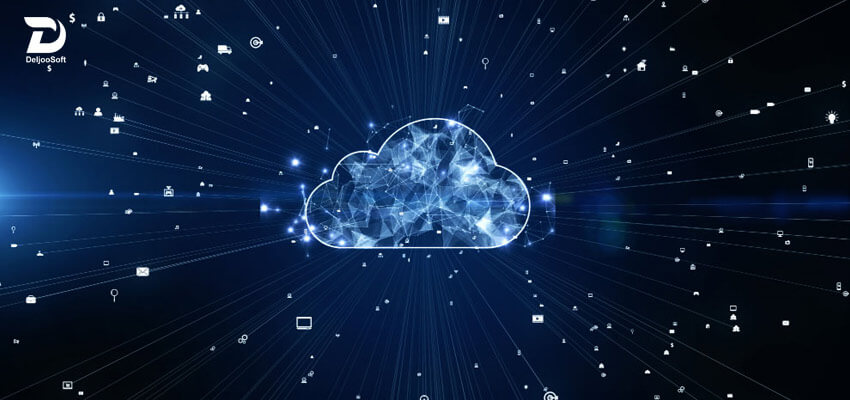
Amazon AWS has the largest market share and two other competitors: Microsoft Azure and Google Cloud.
Including all cloud services (IaaS, SaaS, and PaaS), AWS holds a 150-billion dollar market share in Q1 2021 with 32% of the cloud industry:
- Amazon AWS 32%
- Microsoft Azure 20%
- Google Cloud 9%
AWS vs Azure vs Google Cloud: Ultimate Pros and Cons

Each platform provider offers its particular services and options, and you need to weigh all services to pick the best choice for your business.
AWS
AWS has significant strength in service variation over the two other providers. As the pioneer of the cloud industry, it has become the public cloud market leader.
AWS offers a broad range of services and provides reliable data centers and storage worldwide.
The most argued weakness of Amazon AWS is the cost of services, and many business owners mention the pricing and additional costs of the services and support.Microsoft Azure
Microsoft is the second full-featured market leader in the industry. It offers a comprehensive range of services with the latest technologies and tools. Its significant advantage over the other providers is the integration of Microsoft tools and technologies with the Azure cloud platform. Also, the service pricing on the Azure platform is remarkably fair for businesses and enterprises.
Some reports claim that the Azure platform isn’t perfect enough for enterprises and has problems with service imperfection.Google Cloud Platform
Google offers unique plans for small and medium businesses and various offerings regarding data computing, machine learning, and data analytics. Google Cloud Platform supports cutting-edge programming languages and has advanced features for businesses.
Google still doesn’t offer extended enterprise services, and the GCP lacks special offerings.
Contact our experts
Don’t hesitate to contact us!
AWS vs Azure vs Google Cloud: Compute Services
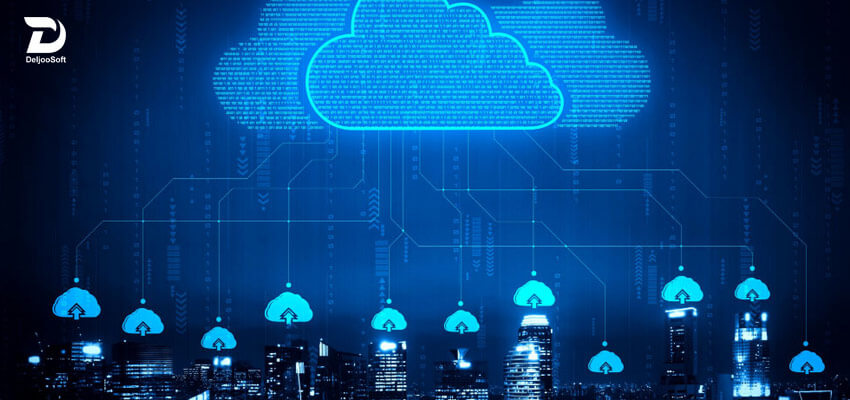
Amazon’s computing service depends on Elastic Compute Cloud, and it has various options alongside support for Windows and Linux. This computing service provides high performance and scalability. Also, Amazon Container Services supports Docker and Kubernetes automates server management, and it offers some other options regarding computing services:
- Lightsail
- Batch
- Elastic Beanstalk
Microsoft Azure platform has comprehensive support for operating systems and technologies such as Linux, Windows Server, SQL, Oracle, and IBM. In the case of computing and data handling, Azure is a high-performance platform highly optimized by Microsoft technologies and artificial intelligence. Its container service is developed on Kubernetes and also provides different computing options for cloud management and application services:
- Virtual machines
- Azure Container Services
- Batch
- Service Fabric
- Cloud Services
Google’s computing service is smaller than other competitors, and it supports Linux and Windows. Google Cloud Platform offers organizations the Kubernetes Engine. The main strength of the GCP computing Engine is Kubernetes and its functionalities.
- Compute Engine
- Kubernetes
- GPU
- Knative
- Container security
Storage Services

AWS, powered by S3, Elastic Block Storage, Persistent Block Storage, and Elastic File System, provides many storage services, such as Hybrid Storage and Physical Hardware Devices. These capabilities enable organizations to transfer large amounts of data in high-performance methods. AWS uses Glacier backup services.
Microsoft Azure has exceptional data storage options, and Big DatBlob Storage, Queue Storage, and Disk Storage offer different technologies and features regarding cloud storage that have made it possible to handle and manage big data. Also, it has unique options for databases through SQL database and database for MySQL and uses different methods for providing backup services.
Google Cloud Platform is growing based on Persistent Disk and Storage. GCP doesn’t offer backup services, and its database storage is an SQL-based database and offers two NoSQL options.
Development Tools

Unsurprisingly, all platform providers have different innovation and application development tools over cloud environments. Machine learning, IoT tools, and networking software are the most popular methods offered by cloud providers.
AWS offers serverless tools, artificial intelligence, and IoT development programs as follows:
- SageMaker
- Polly
- IoT Core
- IoT One-Click
- Machine Learning
- Deep Learning
Microsoft Azure has integrated tools and technologies that provide the following features for application and software development:
- Machine Learning
- IoT Edge
- IoT Hub
- Computer Vision
- Text to Speech
- Azure Bot Service
- Time Series Insights
Google platform has many features related to AI and ML that present the following options and advantages for businesses:
- Cloud Machine Learning Engine
- Cloud Natural Language Computing
- Cloud Speech API
- Cloud Video Intelligence
Contact our experts
Don’t hesitate to contact us!
AWS vs Azure vs Google Cloud: Network Comparison
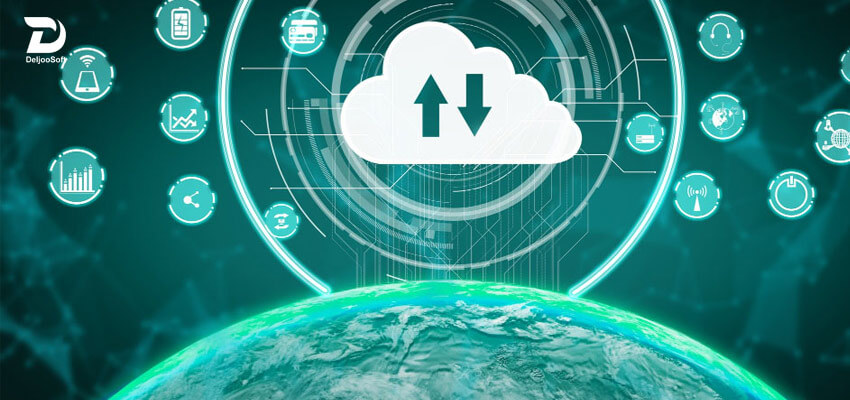
The top three providers have robust cloud network options available in different regions and global locations.
- Azure: Azure Virtual Networks are available in 54 regions worldwide and handle traffic well over different networks. The Azure network is highly flexible and allows organizations to use their own DNS and IP addresses.
- AWS: AWS Direct Connect has comprehensive networks with 22 regions and 14 data centers. This situation enables high-speed connectivity and on-demand access by high-performance servers and storage.
- Google Platform: GCP provides a cloud network with 21 regions, and its data centers are growing worldwide. GCP has a dedicated feature that offers organizations and businesses a Cloud VPN option.
Cloud Security and Compliance Comparison

Cloud security and data protection are the priorities for all service providers, and they implement high levels of data security and data protection through world-class technologies.
- Azure:
Azure cloud platform is based on its central and unified security management system that protects data and applications from cyber threats. You have a security dashboard to check alerts, recommendations, and data recovery plans that prove data security and encryption. - AWS:
AWS offers isolation methods to enhance data security, and you should configure security protocols for accounts. The Amazon platform has security checks via API activity monitoring, data loss protection, and firewalls. - Google platform:
GCP has performed its security goals as well as the two other platforms, and many experts have proven Google’s success in access management and data encryption. To improve its data protection levels, GCP offers monitoring tools, Identity Access Management tools (IAM), and disaster recovery plans.
Management and Monitoring Tools
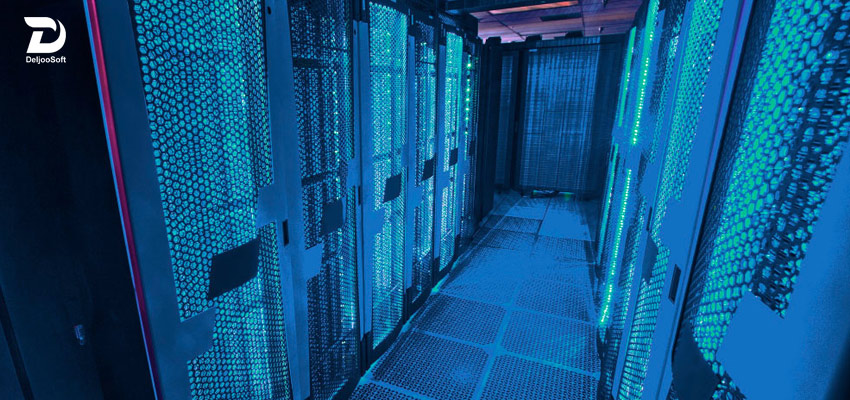
Monitoring and management tools are needed to analyze issues and detect problems in cloud environments. Thus, platform providers offer tools and software to monitor various tasks and application performance.
Cloud monitoring services are as follows, and each of the service providers has powerful tools for cloud management and monitoring:
- Azure: Billing API, Resource Health Storage, Azure Portal Monitor, Automation Resource Manager, Azure Advisor
- AWS: Billing API, Application Discovery Service Systems Manager, CloudWatch, OpsWorks, AWS Trusted Advisor
- GCP: Cloud Billing API, Cloud Console, Cloud Monitoring, Cloud Deployment Manager, Cloud Compliance
Hybrid and Multi Cloud Options

Multi Cloud options are the new and popular feature of the new platforms, and cloud providers offer different tools for benefiting from the capabilities of Hybrid clouds:
- AWS: AWS Outposts, AWS Wavelength, AWS Snowball, Snowcone
- Azure: Azure Arc, Azure Stack, Azure Active Directory, Azure Backup, Azure Blob Storage
- GCP: Anthos, Looker, Operations, Cloud Build, Traffic Director
Contact our experts
Don’t hesitate to contact us!
High-Profile Customers

The top three competitors have their own customers, and you can see the technology and industry drivers are implementing the cloud platforms to enhance their service quality:
- AWS: Netflix, Coca-Cola, McDonald’s, Philips
- Azure: Snowflake, AT & T, FedEx, L’Oreal, Nationwide
- GCP: Twitter, PayPal, Etsy, UPS, Deutsche Bank
AWS vs Azure vs Google Cloud: Pricing

Pricing and plans vary widely for organizations, and it depends on the resources, computing, and storage usage. You have different options to choose from, and it is anyhow hard to compare pricing for cloud services.
All three platforms offer their discounts and pricing for a minimum plan of 2 virtual CPUs and 8GB of RAM as follows:
- AWS: 69$/mo
- Azure: 70$/mo
- GCP: 52$/mo
The following variables are essential for calculating the cost of service, and it depends on your needs and storage:
- Virtual machines such as CPUs, RAM
- Storage Disk
- Subscription model
- Service support
- Location and payment model
Availability Zones

You need to get information about different availability zones for these platforms to provide high-quality and accessible services for your customers:
- AWS availability zones: North and South America, Europe, Asia Pacific, Middle East
- Azure availability zones: Canada, Mexico, Brazil, United States, Asia, Azure Government
- GCP availability zones: Asia, Australia, Europe, North America, South America
Contact our experts
Don’t hesitate to contact us!
What’s the Best Cloud Development Model for You?

The most important factors to examine when choosing a cloud service are your needs and business goals. Your workload and the virtual machines you need affect the selection process, and additionally, the data security and backup options are essential metrics when choosing between services.
Azure cloud development offers high integration options with various Microsoft tools and technologies and is the best choice for data backup, recovery, integration, and scalability.
| AWS | Azure | GCP | |
| Computing | High Performance | Diverse options | Growing |
| Regions and Locations | Medium | Best | Growing |
| Storage | Best | Medium | Basic |
| Databases | Medium | Best | Medium |
| Management | Best | Best | Best |
| Security | Mature | Reliable and various security options | Reliable |
| IoT | Several options | Medium but wide range services | Growing |
| Blockchain | Wide range services | Three step blockchain solution | Hyperledger Fabric and Composer |
| AI | Wide range of services | Proven and reliable services | Pioneer and a wide range of services |
| Big Data | AWS Analytics servicesMedium-Powerful | Azure Stream AnalyticsPowerful | Mature Big Data analyticsSmart analytics platform |
| Integration | Best | Best | Growing |
| Backup and Disaster Recovery | Comprehensive | Best | Best |
| Pricing | Costly | Manageable | Minimum |
Why Choose Azure for Cloud Migration?

Azure cloud application development offers multiple services, from Big Data computing and easy cloud migration to ideal backup and disaster recovery options. The Microsoft Azure platform has also been highly integrated with programming tools, IoT, and Microsoft technologies to deliver an all-in-one service for organizations and enterprises.
Hybrid cloud solutions and the ability to be used in diverse regions have made the Azure platform one of the top cloud-based services. More importantly, offering affordable service plans can be the essential feature of this high-performance service.
Windows-based organizations can make the best of the Azure platform and use technologies like .Net and AI to deliver various customer services.
Need Help with Cloud Migration or Cloud Solution Development? Take Advantage of DeljooSoft Expertise

DeljooSoft offers Azure cloud development services that have proven beneficial for enterprises and organizations. Our experts provide a complete roadmap for migrating digital assets and applications to the Azure cloud platform.
Due to this platform’s endless features and different tools for application development, you can easily move your assets to the new environment and use several features of this reliable platform. By comparing AWS vs Azure vs Google Cloud, different features like AI, ML, IoT, Big Data, and various programming languages have made the Azure platform one of the preferred cloud services.
Our Cloud Development Services

Cloud development services offer various capabilities delivered over reliable and high-performance cloud-based platforms. Today, companies and enterprises have found that cloud solutions are affordable and on-demand for different business problems. You can move your workloads to new and trustworthy computing platforms by taking a few steps.
If you want to know more about our special offers regarding the Azure cloud platform, please use the form below to contact our experts. We have cost-effective and comprehensive services customized for your business and customer needs.
Contact our experts
Don’t hesitate to contact us!
